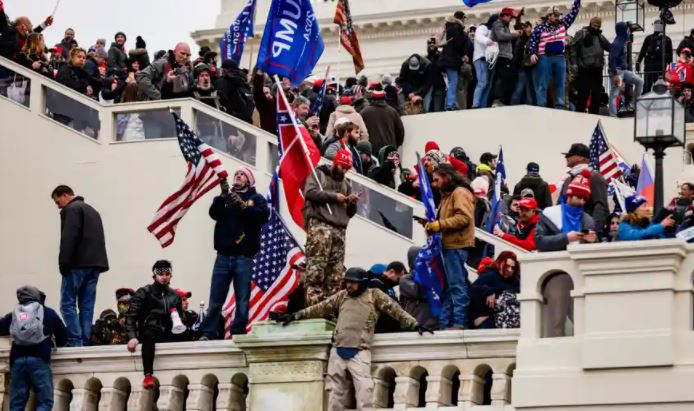A National Moment

There are times in a nation’s history where something happens that touch the national spirit and instantly galvanizes public opinion. These could be major historical events like the attack on Pearl Harbor or 911. They could be moments of national pride, such as the Moon landing, or moments of tragedy such as the Challenger disaster, or in Britain, the death of Princess Diana.
At these moments, how a leader reacts is critical. What a leader should do at such a moment is conceptually pretty easy. Understand what is going on, and then tap into that sense of national unity to build a consensus that will help the nation do what it needs to do.
This is what most leaders do, or at least try to do; they seek to unify the country and build a sense that we are all part of the nation. FDR’s speech to Congress following the attack on Pearl Harbor unified the country, preparing it for what lay ahead. Reagan’s speech following the Challenger disaster unified the country in the sorrow of the lost. But not all rise to the moment. A few seek to exploit it for political gain. This rarely ends well. Following the Reichstag fire in 1933, Hilter used the event as an excuse to go after his political opponents and consolidated his power.
The riot at the Capitol Building was a national moment. In one sense, this was just another example of the political unrest and riots happening with increasing regularity. But this was something more; this was something different. The video of rioters walking around the Senate Chamber shocked people in a way that similar footage of rioters walking around the streets of cities had not. The Capital is not just a building; it is a symbol of our government. This was a national moment, and there was near-universal disgust and condemnation of the rioters.
As for what is going on, that is pretty clear. We, as a nation, are not just divided; we are polarized. We have, for the most part, lost the ability to have a political discussion. And as such, increasingly, people are resorting to violence. If the last election showed us anything, it is that we are split 50-50. There is only one peaceful way out of this problem; we must lower the rhetorical temperature and start talking to each other again.
How did our leaders do? Trump, ever the egoist, could not see past his personal grievances to rise to the moment. His statement the next day was a better, but too little too late. Leaders rarely get do-overs.
As for Biden, as an incoming President, this was the softball of all softballs. A speech seeking to lower the political rhetoric and calling on unity could have set the tone for the start of his Presidency as the unifier. It would have rallied the country behind him right as he becomes President.
He did the opposite. Rather than seek unity, he used the opportunity to attack Trump and his supporters yet again. For the majority of the speech, if you did not know the context, you could have easily thought it had been given in October during the heat of the election.
To make matters worse, he then went on to say, “No one can tell me that if it had been a group of Black Lives Matter protesting yesterday, they wouldn’t have been treated very, very differently than the mob of thugs that stormed the Capitol.” He says this as if we have not seen how rioters across the country have been allowed to take control of cities for days, or even weeks, in some cases. Such statements can only further divide the nation.
If all this was not bad enough, Biden then ended with a veiled threat, saying, “I hope it’s sensitized them to what we have to do.” What we have to do? He then talked about the Justice Department, being formed to “take on domestic terrorism.” Just what is he planning?
So rather than a speech on unity and lowering the political rhetoric, Biden used the opportunity to attack his political opponents and proposed going after them with the Justice Department. So much for unity and healing the country.
Let me suggest an alternative message for the inaugural. While not a national moment, Abraham Lincoln became President at a time when the nation was polarized. He concluded his first inaugural with the following plea,
We are not enemies, but friends. We must not be enemies. Though passion may have strained it must not break our bonds of affection. The mystic chords of memory, stretching from every battlefield and patriot grave to every living heart and hearthstone all over this broad land, will yet swell the chorus of the Union, when again touched, as surely they will be, by the better angels of our nature.
Sadly Lincoln’s plea was ignored, and the Civil War broke out. Perhaps we should not ignore it now.

